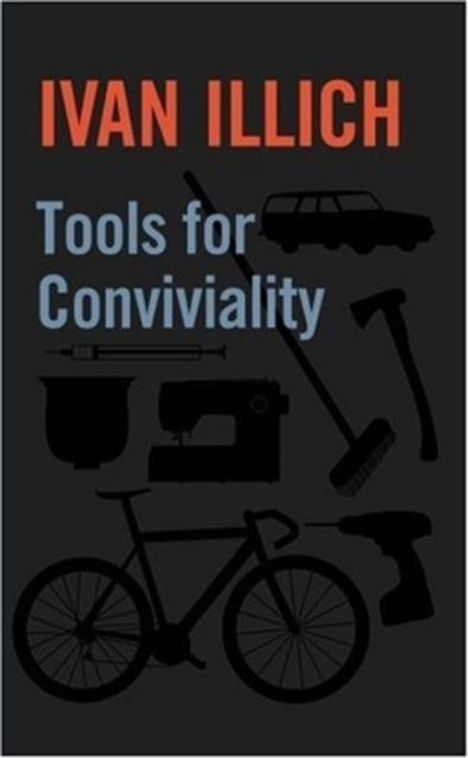Ivan Illich: Tools for Conviviality, Kartoniert / Broschiert
Tools for Conviviality
(soweit verfügbar beim Lieferanten)
- Verlag:
- Marion Boyars Publishers Ltd, 11/2025
- Einband:
- Kartoniert / Broschiert
- Sprache:
- Englisch
- ISBN-13:
- 9781842300114
- Artikelnummer:
- 8813536
- Umfang:
- 128 Seiten
- Gewicht:
- 136 g
- Maße:
- 196 x 127 mm
- Stärke:
- 15 mm
- Erscheinungstermin:
- 30.11.2025
- Hinweis
-
Achtung: Artikel ist nicht in deutscher Sprache!
Klappentext
Tools for Conviviality was published only two years after Deschooling Society . In this work, Illich generalized the themes that he had previously applied to the field of education: the institutionalization of specialized knowledge, the dominant role of technocratic elites in industrial society, and the need to develop new instruments for the reconquest of practical knowledge by the average citizen. Illich proposed that we should 'invert the present deep structure of tools' in order to give people tools that guarantee their right to work with independent efficiency.' Tools for Conviviality attracted worldwide attention. A resume of it was published by French social philosopher Andre Gorz in Les Temps Modernes, under the title 'Freeing the Future'. The book's vision of tools that would be developed and maintained by a community of users had significant influence of the first developers of the personal computer, notably Lee Felsentein. Illich wrote: 'I choose the term 'conviviality' to designate the opposite of industrial productivity. I intend it to mean autonomous and creative intercourse among persons, and the intercourse of persons with their environment, and this in contrast with the conditioned response of persons to the demands made upon them by others, and by a man-made environment. I consider conviviality to be the individual freedom realized in personal interdependence and, as such, an intrinsic ethical value. I believe that, in any society, as conviviality is reduced below a certain level, no amount of industrial productivity can effectively satisfy the needs it creates among society's members.' The conviviality for which noted social philosopher Ivan Illich is arguing is one in which the individual's personal energies are under direct personal control and in which the use of tools irresponsibly limited. A work of seminal importance, this book claims our attention for the urgency of its appeal, the stunning clarity of its logic and the overwhelming human note that it sounds.
Biografie
Ivan Illich (1926 - 2002) studierte Naturwissenschaften, Philosophie und Theologie. Nach Promotion in Salzburg und Priesterweihe im Vatikan arbeitete er als Seelsorger in den New Yorker Slums. Von 1956 bis 1960 leitete er die Universität von Puerto Rico und geriet durch seine kritische Haltung gegenüber der Politik der katholischen Kirche in Südamerika mit dem Vatikan in Konflikt. 1996 gab Illich sein Priesteramt auf und lehrte anschließend an europäischen, amerikanischen und japanischen Universitäten. Seine zivilisationskritischen Bücher und Essays wurden in viele Sprachen übersetzt.

